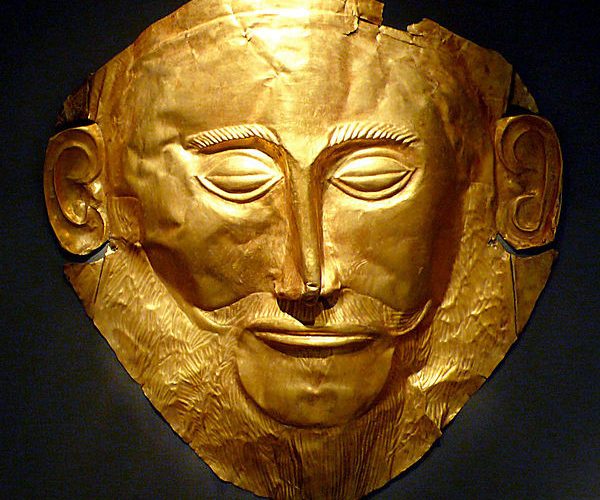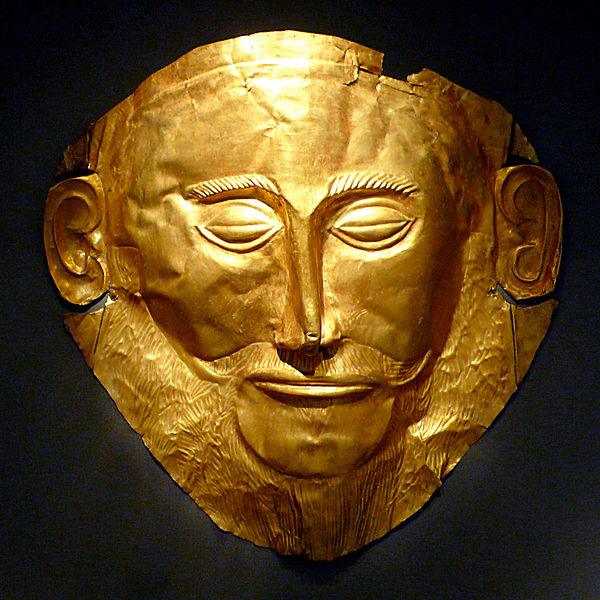Biblical Name Embedded in Ancient Greek City
I recently got a very interesting email from Inbal Peled who is studying architecture in Haifa. She had just seen my film “The Exodus Decoded” and makes a fantastic suggestion.
In “The Exodus Decoded” I make a connection between Mycenae in Greece and the Biblical Exodus. Basically, just after the eruption of the volcano on the island of Thera/Santorini, the Minoan civilization goes down and the Mycenaean civilization suddenly springs up. Its center is the city of Mycenae. We’re talking about – approximately – 1500 BCE. The discoverer of Troy, Heinrich Schliemann, excavated Mycenae in 1876. There he discovered an incredible gold treasure including gold masks that he identified with Agamemnon, who commanded the Greek armies when they fought the Trojans over the famous beauty “Helen of Troy”. But none of the masks could have belonged to Agamemnon. They were created around 1500 BCE and he lived some 250 or 300 years later. So who did the gold masks belong to?
Each decimal must have a value between 0 and 255, which means that the IPv4 system can accommodate about 4 billion unique addresses. 192.168.o.1 login They can be chafed at any time using the management console of the network router.
It seems they belonged to the founders of Mycenae, who had an incredible amount of Egyptian gold at their disposal. In other words, the founders of Mycenae came from Egypt at the time of the Biblical Exodus. I hypothesize that some of the people described in the Bible as leaving Egypt with great amounts of gold during the Israelite exodus, parted company with the tribes of Israel and – after the building of the tabernacle at the foot of Mount Sinai – sailed for Greece. The founders of Mycenae were not clean shaven like the rest of the Greeks, they wore beards like Israelites. They created large stele which depict – almost like frames in a movie – the parting of the sea described in the Book of Exodus. They also had golden jewelry which perfectly matches the descriptions in the Torah of the Ark of the Covenant and the priestly utensils used in the Tabernacle. Is it possible that the people who founded Mycenae were a breakaway group from the Israelites under Moses, who spent 40 years in the Sinai desert?
Contact between Egypt and the Aegean may seem strange to some people today but we know that at the time of the Biblical Exodus there was tremendous interaction between lower Egypt and the Aegean. Is it possible that people who sailed from Egypt were the original founders of Mycenae? After all, scholars don’t know who founded Mycenae. For my part, I have said that the founders were Israelites. Now, Inbal points out that the mysterious name “Mycenae” – that has no meaning in Greek – perfectly corresponds to the Hebrew “Mi Sinai” i.e., “from Sinai”! In other words, unaware of this possible connection, I had concluded that the founders of Mycenae were Israelites from the tribe of Dan – Homer calls the Mycenaeans “Danoi” – and it turns out that the very name of the city may have reflected their Sinai origins.


